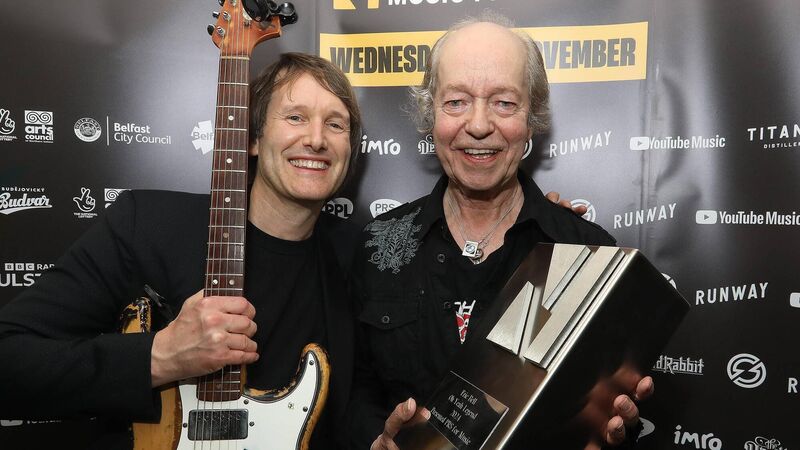Tom Dunne: The northern music scene is buzzing again — and it's not just Kneecap

Tim Wheeler of Ash with Eric Bell of Thin Lizzy at the Northern Ireland Music Prize 2024 at the Ulster Hall. Picture: Jim Corr
Whilst obviously Cork Opera House is the rockiest, coolest, most history-drenched venue in Ireland – threatened in its time by both the British Army and Dublin four-piece Something Happens – the Ulster Hall in Belfast does give it a run for its money.
Cork Opera House opened in 1855, the Ulster Hall in 1862 (The Olympia, 1879, and the Gaiety, 1871, are blow ins) and both share a quite similar rock history. But Ulster has the edge in one area: It was the scene of the most famous gig that didn’t happen.





